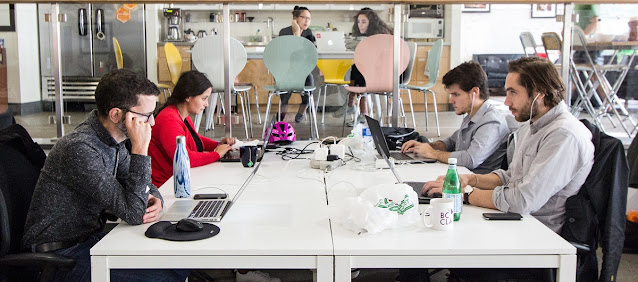During the last two years, there have many changes to the way we work and live that will now become permanent features of our daily lives going forward. This ranges from a greater focus on local purchasing, the increasing use of delivery services and possibly the most significant of all, the growth of flexible working.
Whilst working from home was initially a legal requirement across the World to deal with the health challenges of the Covid-19 pandemic, as countries have opened up again, many employees have begun to realise that they did not want to go back into the workplace every day.
For example, the “European Coworking Spaces During Pandemic” report recently suggested that the commute to the office will reduce with 78% of respondents expecting that there will be increase in the number of workers will want to work close to home with a further 73% expecting that there will also be a growth in home working. Another study from Work From Home Research showed that 68 per cent of those questioned wanted some or all of their paid work days to be at home.
From the point of view of the employee, a range of studies have shown that a better work-life balance is the driving force behind these changes, especially as the restrictions imposed during the pandemic have made them realise that they can be just as productive without having to travel two hours every day to their workplace. In fact, the impact of these changes has, according to one report, changed the priorities of those in the workplace.
For example, a recent study showed that more than half of working Americans say that flexible work is the most important to them, compared to one-quarter indicating that career progression is the most important. In fact, 36 percent of respondents stated that flexibility is the most important action their employer has taken to support mental health.
From the point of view of the employers, recent research has shown that rather than having a negative effect as many as predicted, employers that have embraced flexible working policies have seen a 20 per cent improvement in employee recruitment and retention as compared to the situation prior to the pandemic.
More relevantly, seven in ten of senior decision-makers stated that not only are flexible working policies and working environments having a positive impact in recruiting talent but are also important in retaining talent.
With more workers wanting to work flexibly, a hybrid model has emerged where the norm is for employees to work away from the office on Monday and Friday and to be back in for the rest of the week. To deal with this, there has been a drive by businesses to invest more in digital infrastructure to support this demand, with as many as 40 per cent stating that this was as a direct response to the Covid-19 pandemic.
However, this is not always easy given the challenges for people who are juggling their personal and working lives out of the same house as well as getting access to the same IT specifications as one would expect in the workplace.
Given this, there is evidence that businesses are increasingly looking to change the role of the office. For example, a recent study from the real estate company Cushman and Wakefield showed that the three most important trends were for the future office to become a place for creativity, innovation and osmosis, for employees and clients to build and maintain culture, and, more traditionally, for meetings between employees and clients. Only 8 per cent perceived that there would be a requirement from the business for employees to be in the office.
However, as the CEO of Admiral said earlier this week, if businesses are going to get their staff to come in, then they must make coming to work a better experience with enhanced facilities although even that may not be enough.
Asa result, an increasing number of employers are now thinking about whether they should have a core office and access to flexible workplaces. With employees less likely to want to travel to work every day, there is likely to be an increase for flexible workspaces, especially in urban areas that have traditionally been commuter belt towns.
This trend does present opportunities for local authorities, alongside private landlords, to examine how increasing amount of empty retail space - which is also a result of the recent economic downturn - could be used to meet the needs of employers and employees who want greater flexible working.
With more workers wanting to stay close to their home during the week, there could now be a shift in workers from the big cities resulting in an unintended levelling up in regenerating smaller towns as other businesses are boosted by this shift as workers spend more time and money close to their home. In fact, data commissioned by insurance giant Legal and General found that 47% of people who work from home plan to spend more money locally than they did before the pandemic.
Therefore, it would seem that the reluctance by employees to return to the office after the Covid 19 pandemic has changed how people are viewing their work-life balance and, according to some studies, has had a positive effect on the employment patterns of many businesses. More importantly, it could also have a significant impact on the economic prospects of many parts of the UK that have previously been neglected over the next few years.
